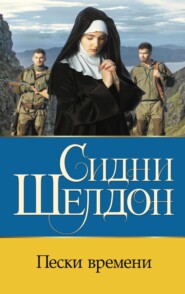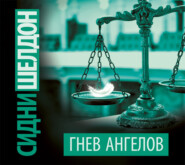По всем вопросам обращайтесь на: info@litportal.ru
(©) 2003-2025.
✖
Sidney Sheldon’s Chasing Tomorrow
Автор
Год написания книги
2018
Настройки чтения
Размер шрифта
Высота строк
Поля
‘And the bad news?’
‘Your eggs are a bit crap.’
Tracy’s eyes widened. This was not the sort of terminology she was used to hearing from eminent Harley Street doctors. ‘A bit crap,’ she repeated. ‘I see. How crap exactly?’
‘If Ocado delivered you a dozen of them in a box and you opened it, you’d probably send it back,’ said Dr McBride.
‘Riiiight,’ said Tracy. And then, to her own surprise, she burst into laughter. ‘So what happens now?’ she asked, once she’d regained her composure.
‘You take these.’ Dr McBride pushed a packet of pills across the desk.
‘Clomid,’ read Tracy.
‘They’re magic.’ Dr McBride positively glowed with confidence. ‘Basically they’re like those practice machines on tennis courts that fire off balls. Bam bam bam bam bam.’
‘What’s all the bamming?’
‘That’s your ovaries, shooting out eggs.’
‘Crap eggs.’
‘They’re not all crap. Try it. No side effects and it will triple your chances of getting pregnant.’
‘Okay,’ said Tracy, feeling hopeful for the first time in nearly a year.
‘If you’re not up the duff within three months, we’ll go nuclear on the problem with IVF. Sound good?’
That conversation had happened three months ago. Tracy had just finished her last round of Clomid. If today’s test was negative, she would begin the brutal, invasive process of in vitro. She knew that millions of women did it, and told herself that it was no big deal. But deep down, IVF felt like failure. I’m a useless wife, thought Tracy. A faulty model. Damaged goods. Jeff should return me and trade me in for one that works. One with eggs that aren’t crap.
She looked at her watch. One minute to go.
Sixty seconds.
She closed her eyes.
She remembered the last time she’d been pregnant, with Charles Stanhope’s baby. Charles’s parents were rich Philadelphia snobs. They’d been furious when Tracy got pregnant, but Charles had assured her he wanted both her and the baby. But then Tracy had been sent to prison, framed for a crime she didn’t commit, and Charles had turned his back on her. She could still hear his voice now, as if it were yesterday.
‘Obviously I never really knew you…you’ll have to do whatever you think best with your baby…’
Savagely beaten by her cell-mates, Tracy lost her baby. She hadn’t told that to Dr McBride. Perhaps she ought to? Perhaps it made a difference, even now?
Thirty seconds.
Warden Brannigan and his wife, Sue Ellen, had taken pity on Tracy and hired her as a nanny for their daughter, Amy. Tracy had saved Amy’s life, risking her own in the process, and had been granted parole as a result. She’d loved that little girl dearly. Too dearly, perhaps, for Amy wasn’t hers. Would never be hers. How old must she be now?
Ten seconds.
Tracy opened her eyes. Nine seconds. Eight. Seven…three, two, one.
Heart pounding, she grabbed the test stick and turned it over.
JEFF STEVENS TURNED THE COIN OVER in his hand and felt a shiver of excitement thinking about all the hands that had held it before him. This is history. Living history. And I’m touching it.
It was incredible how new the thing looked, as if it had been minted yesterday. In fact the small silver disc had been forged in the old English kingdom of Mercia in around the year 760. It bore the name and image of Queen Cynethryth, wife of the fabled King Offa, often considered the first, true king of all England. Jeff Stevens liked the sound of King Offa. The guy had clearly had an ego bigger than his kingdom and the balls to match. He’d had this particular coin fashioned in the style of the late Roman emperors, who often issued currency in the names of their wives. On one side of the disc was the name of the silversmith who’d made it. The other side bore the inscription: CENETHRETH; REGINA (Cynethryth, Queen) with a perfect M in the middle for Mercia.
The coin was a statement. ‘If it was good enough for the Roman emperors, it’s good enough for me.’ Not bad for a Saxon warlord/thug who’d fought his way to the top with his bare, bloody hands.
Jeff Stevens loved working at the British Museum. People often talked about their ‘dream jobs.’ But for Jeff, this truly was a dream, a fantasy he’d nurtured since he was a small boy.
Jeff’s mother had been killed in a car crash when he was fourteen. Two months later his father, an aluminium-siding salesman, married a nineteen-year-old cocktail waitress. One night when his dad was on the road, Jeff’s stepmother had made a crude attempt to seduce him. The teenage Jeff made a run for it and headed for Cimarron, Kansas, where his uncle Willie ran a carnival. From that day on, Uncle Willie effectively became Jeff’s father, and the carnival became his school. It was there that Jeff learned about human nature. About greed, and how blind and foolish it could make even the most intelligent of men. All the confidence tricks that he would later go on to use to devastating effect against some of the richest, nastiest individuals in the world, Jeff learned from Uncle Willie and the carnies.
But it was also one of the carnies who first instilled in Jeff a love of antiquity and a profound respect for the past. This man had been a professor of archaeology, just like Professor Nick Trenchard, before he was thrown out of the university where he taught for stealing and selling valuable relics.
‘Think of it, son,’ he used to tell Jeff. ‘Thousands of years ago there were people just like you and me dreaming dreams, spinning tales, living out their lives, giving birth to our ancestors.’ His eyes took on a faraway look. ‘Carthage. That’s where I’d like to go on a dig. Those people had games and baths and chariot racing. The Circus Maximus was as large as five football fields.’
The young Jeff listened, entranced.
‘Do you know how Cato the Elder used to end his speeches to the Roman senate? He’d say, “Delenda est Cartaga.”Carthage must be destroyed. His wish finally came true. The Romans reduced the place to rubble and built a new city on its ashes. But boy, think of the treasures that must be under there!’
Jeff had never stopped thinking about them. He felt as much excitement, holding the ancient Saxon coin in his hand now, as he had ever felt stuffing a bag with priceless jewels, or walking brazenly out of a major art gallery with an Old Master tucked under his arm. Best of all, this job was legit. There were no Interpol or FBI or Mafia goons on his tail. He actually got paid to do this.
‘Hey, boss. The volunteers from the Women’s Institute just arrived. Where would you like them to start?’
Rebecca Mortimer, a Ph.D. student and intern, was the one member of the museum staff who was even newer than Jeff. A striking twenty-two-year-old with brown eyes like gleaming horse chestnuts and almost waist-length auburn hair, she had started work just two days ago, but already Jeff had a good feeling about their working together. Rebecca was as passionate about the ancient world as Jeff was, and there was an earnestness about her that he found endearing and that brought out his paternal side. Like the small army of elderly volunteers that the British Museum used to help out with special exhibitions and keep costs down, Rebecca was unpaid, but Jeff got the sense she would happily have sold everything she owned for the joy of working here. He knew how she felt.
‘Show them into the Special Exhibitions Reading Room,’ said Jeff, replacing the Mercian coin in its glass case and locking the display. ‘It’s the little room right next to the Great Russell Street entrance. I’ll give them a run-through of their duties next week and you can help me take questions.’
‘Really?’ Rebecca’s eyes lit up.
‘Sure, why not? You already know more about Saxon burial sites than I do.’
‘Thanks, Jeff!’
She skipped delightedly out of the room, her long ponytail swishing behind her, but a few seconds later she was back. ‘Oh. I forgot to mention. Your wife is here to see you.’
‘Tracy’s here?’ Now it was Jeff’s turn to light up.
‘Yes. I heard her asking for you at the desk in the Great Court. I said you’d be right down.’
TRACY GAZED UP AT THE VAST, modern, glass-domed ceiling of Lord Foster’s Great Court with a combination of awe and surprise. Shamefully after all her years in London, she’d never been to the British Museum, and had always pictured it as a grand, Victorian building, similar to the three South Kensington landmarks: the Natural History Museum, the Science Museum and the Victoria and Albert.
In fact, as the leaflet she was now reading explained, the British Museum was actually pre-Victorian, although much of its present-day architecture was aggressively modern. At two acres, the Great Court in which Tracy now stood was the largest covered public space in Europe. But it led into numerous older wings within a vast Bloomsbury complex. Founded in 1753, the British Museum was the first national public museum in the world. Sir Hans Sloane, the famous naturalist and collector, bequeathed over seventy-one thousand objects, including books, manuscripts and antiquities such as coins, medals and prints, to King George II for the nation, providing the basis of the museum’s collection. Today it housed eclectic collections of treasures from around the globe, from Chinese ceramics to ancient Egyptian tomb relics to medieval manuscripts and Anglo-Saxon jewellery. Tracy thought, No wonder Jeff fell in love with this place. Talk about a kid in a candy store.
‘Baby! What a wonderful surprise.’
Jeff sneaked up on her from behind. Tracy closed her eyes as his arms encircled her waist, pulling her into his body. He smelled of Penhaligon’s cologne, his signature scent and one that Tracy had always adored. I’m so lucky, so very lucky to have him.
‘What brings you here?’

















